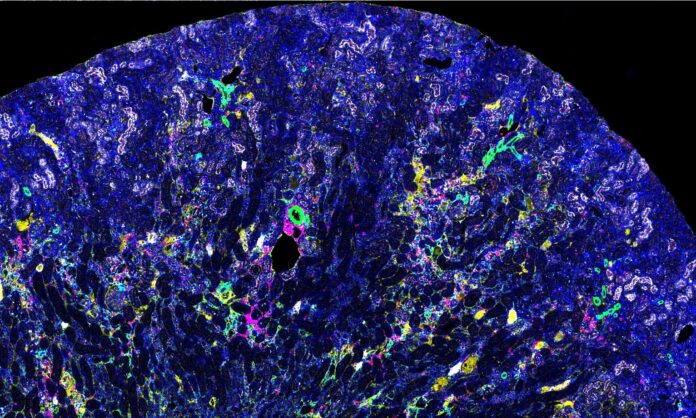
LOUISVILLE — A team of researchers at the University of Louisville has been honored for their pioneering work in uncovering a new connection between cancer treatment and kidney disease.
Their award-winning study, named Paper of the Year by the American Journal of Physiology, sheds light on the heightened risk of kidney complications in cancer patients undergoing treatment. The study revealed that cancer itself may harm the kidneys, but that damage and scarring is intensified when patients take cisplatin, a commonly used chemotherapy drug.
“Everything in your body is connected, from your internal systems to the medications we take,” said Andrew Orwick, lead author and recent doctoral graduate in pharmacology and toxicology.
Orwick’s doctoral research in the laboratory of researchers Leah Siskind and in collaboration with Levi Beverly, both from the UofL School of Medicine and Brown Cancer Center, examined the interplay of cisplatin and lung cancer, which is highly prevalent in Kentucky.
“By better understanding what those interactions are and how they happen,” he said, “we can take them into consideration and improve outcomes for the patient.”
Ultimately, that could lead to new diagnostics, more effective drugs and treatment plans that better consider the patient’s overall health and avoid or limit kidney damage.
Chronic damage to the kidneys can cause nausea, vomiting, fatigue, high blood pressure and even death, without transplant or dialysis. Because symptoms progress slowly, patients may not notice the condition until its advanced stages. Even so, current testing methods are difficult and invasive.
The UofL researchers think their work could help clinicians better predict not only which patients will react negatively to cisplatin and other chemotherapy drugs, but also identify potential kidney problems early. The goal is to better understand the underlying mechanisms and biomarkers, so clinicians can make more informed decisions.
“Obviously, addressing the cancer is first and foremost, but if we can do that while also preserving the patient’s overall health and feeling of health, that’s optimal,” said Siskind, a professor and senior author on the study. “The great news is that the fact that we’re even having this conversation means we’re making progress in solving cancer — we’re considering not only life, but the quality of that life.”
Siskind said the paper represents a paradigm shift in how researchers think about and treat both cancer and kidney disease. As it stands, no treatment for this form of kidney disease has made it past a phase 2 clinical trial or been approved for use in patients. This research could also help inform better drugs and experiments to fill that need.
That innovative thinking and broad impact is likely part of why this work was selected as Paper of the Year, said Jon Klein, interim executive vice president for research and innovation.
“Being selected for this honor is a massive accomplishment and underpins the immense value of the research being done by this team and across UofL,” Klein said. “This is work that truly can save and improve lives.”

















